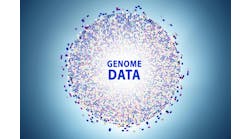LunaPBC, a San Diego-area company that says it is building a community-owned genomic and health data platform, has received $4.6 million in new funding, bringing the company's total funding to date to $7.6 million.
Investors in this round include ARCH Venture Partners, Bain Capital Ventures, F-Prime Capital, Illumina Ventures, and Osage University Partners. The startup’s LunaDNA platform is seeking to take a new approach by rewarding individuals for sharing health data. The company envisions providing value to pharmaceutical, insurance and healthcare IT companies, as they improve health outcomes through the discovery of new therapies and a deeper understanding of patient outcomes.
LunaDNA was created by the Public Benefit Corporation LunaPBC, which was founded in 2017 and headquartered in La Jolla, Calif.
In December 2018, LunaDNA received what it called “precedent-setting” qualification from the U.S. Securities and Exchange Commission (SEC) to recognize an individual's genomic and health data as currency with which to acquire shares of ownership in the company.
“This unique offering ensures members share in the value created from research performed on the platform. Members have the opportunity to advance research, receive shares in the Company commensurate with their contribution activity, and engage with utility apps and partners that align with their interests,” the company said. LunaPBC said its business model is based on individual data control, transparency, and community, including protecting the anonymity of members.
"The timing is right to be changing the paradigm in data stewardship. There is a growing dissatisfaction with the use and exploitation of personal health data today,” said Bob Kain, CEO and co-founder of LunaPBC, in a statement. “Our community ownership solution and its underlying technology provide individuals with transparency, control, and data dividends.”
The company said the new funding would be used to accelerate research partnerships, onboard new partners such as Genetic Alliance, and expand platform development and marketing teams.
Genetic Alliance, a nonprofit dedicated to providing people with tools to transform research, is leveraging LunaDNA's data stewardship model for its 45 disease communities representing more than 50,000 patients. LunaPBC's new funding is accelerating the integration of Genetic Alliance's Platform for Engaging Everyone Responsibly with LunaDNA, to provide individuals and communities with more resources to support their health management while maximizing research opportunities.
LunaDNA accepts DNA files from vendors including 23andMe, AncestryDNA, MyHeritage and FamilyTree DNA, as well as LunaDNA-generated health surveys. The acceptance of new information types will be accelerated as a result of the new funding and include whole genome and exome DNA files, RNA, microbiome, electronic health records (EHRs), fitness and activity trackers, and smart devices, the company added.

